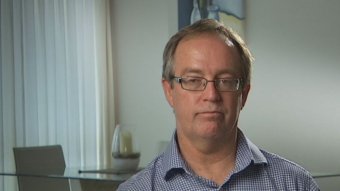The man who resigned as head of the National Advisory Council on Mental Health over frustrations with the Rudd government has expressed renewed hope the sector will get more attention under new Prime Minister Malcolm Turnbull.
Professor John Mendoza indicated he was optimistic Australia now had a leader who understood extra resources were needed to address the biggest cause of disability in the country.
“I think now with Malcolm Turnbull assuming the role of Prime Minister he understands this issue, he’s had a lot of direct briefings from people in the know,” he said.
“He’s played a direct role in reducing the suicides in his own electorate.
“So I think Prime Minister Turnbull understands, not nearly from the personal impact of poor mental health and suicide, but he understands the economics of it.
“And if we’re going to lift the economic performance of the country then one of the places we have to start is improving access to quality mental health care because it is one of the biggest drags on the nation’s productivity at present.”
Professor Mendoza said mental health was responsible for a quarter of all disability nationally with depression, anxiety and substance abuse listed as the most common disorders.
“One in five Australians every year will experience a clinical level of need in relation to a mental health condition,” he said.
“So it’s common and it causes the greatest burden of disability — that means it accounts for more years of life lost to disability than any other cause.
“And yet we have this amazing deficit — a huge gap — in terms of the funding for mental health.”
Crowd funding campaign to ‘build awareness’, drive investment
Professor Mendoza is a key supporter of a crowd funding campaign launched recently called Australians for Mental Health.
He is hopeful it will raise a “substantial amount” of money to advocate for better government funding.
“But also to build the community’s awareness about … the consequences of this inadequate investment in mental health.”
Professor Mendoza was hopeful it could be as successful as the breast cancer campaign that started about 20 years ago and had seen a drop in the number of deaths.
“And the beginnings of that were very much based around community awareness and advocacy and we’ve seen that to the point of footballers running around with pink socks, pink jerseys,” he said.
“All really in a sense raising awareness but also advocating that we get research dollars, that we get the services that are necessary to further reduce … the number of deaths.
“And in a similar way — by having this sort of initiative in relation to mental health — you know not even necessarily a large amount of money but enough money to keep the community engaged on this issue and through that get political action.”


